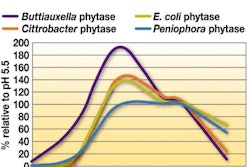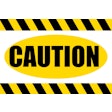In an MSN article from Reuters, U.S. Department of Agriculture (USDA) documents revealed that cattle, previously euthanized by Tyson Foods, had lost their hooves and all were fed the muscle-building drug Zilmax, made by Merck & Co. Inc. The animal feed additive was a common factor in 17 animals that were euthanized, according to the report.
The day after the hoofless animals were euthanized on August 6, 2013, Tyson told its feedlot customers it would stop accepting Zilmax-fed cattle. According to Reuters, after it reported the existence of a videotape of apparently lame Zilmax-fed animals, which was shown by an official of meatpacker JBS USA LLC at a trade meeting in Colorado, Merck temporarily suspended sales of the drug in the U.S. and Canada, while other meatpackers in the U.S. followed Tyson’s decision.
In a statement to Reuters, Merck stressed the safety of its product, saying the company investigates all reports of adverse reactions to its drugs, which it did after the deaths at Tyson’s slaughterhouse in Pasco, Wash.
“Several third-party experts were brought in to evaluate the situation, review the data and identify potential causes for the hoof issue,” Merck’s statement said. “The findings from the investigation showed that the hoof loss was not due to the fact these animals had received Zilmax.”
After temporarily halting Zilmax sales, Merck states Zilmax is safe when used as directed with no welfare concerns discovered in 30 research studies since the product was introduced in the U.S. in 2007. Additionally, Merck said the company is planning more field evaluations of Zilmax using “a well-designed collection and analysis of data by third-party industry experts” with an epidemiologist and veterinarian who will oversee the work.
Merck did not identify the names of the third-party investigators or provide more detail on the research findings.
Scientists say they have yet to determine whether Zilmax causes ailments so severe that cattle must be euthanized. According to the Reuters article: “One theory is that the federally approved feed additive may compound the effects of common feedlot nutritional disorders such as acidosis, which can affect animals that consume too much starch (primarily grain) or sugar in a short period of time. Heat and animal genetics, too, may be factors.”
Federal law requires Merck to report all animal deaths, as well as any other adverse reactions, in connection with use of its feed additive products. A review of reports submitted by Merck and others to FDA shows 285 cattle have died unexpectedly or were euthanized in the U.S. after being fed Zilmax since the drug was introduced in 2007. The FDA reports specify the ailments that led to the unexpected deaths, but do not consistently state whether the animals died on their own or were euthanized. Of the 285 animals that died, 113 were fed either an animal-based antibiotic or another medication to boost weight, or both, in conjunction with Zilmax.
According to Reuters, which reviewed the reports, at least 75 animals lost hooves and were euthanized after being fed Zilmax over the past two years; pneumonia was a factor in the death of 94 cattle fed Zilmax, while bloat was listed as a cause in 41 cases of cattle fed Zilmax.
Merck Animal Health said proper use of Zilmax “does not affect the safety or well-being of cattle.” Merck also said in August 2013, the company launched an audit of how the product was being used in the field, created an advisory board to review management practices in the feedlot and animal nutrition industries, and provided new funds for field research on Zilmax-fed cattle.
The company said it plans to reintroduce Zilmax, but said it is too soon to know when sales to U.S. and Canadian customers may resume.
An FDA spokeswoman in a statement said the agency “has not reached any conclusions on the safety of Zilmax but the agency is continuing to receive and evaluate data. As part of this process, the agency is always interested in new information.”
The Merck suspension of Zilmax sales is voluntary, and at this point the company could return Zilmax to the market without seeking permission from the FDA.
Reuters said Tyson and Cargill said the companies will not accept Zilmax-fed cattle until Merck can provide a scientific vetting of Zilmax’s safety to animals and the companies are confident any animal welfare issues are resolved.
On December 5, 2013, nearly 300 veterinarians debated the effects of Zilmax and other beta-agonist drugs at an Academy of Veterinary Consultants conference, without reaching a conclusion, according to academy president, Larry Moczygemba.
“Few, if any, think this is just a beta-agonist problem all on its own,” Moczygemba said. “But our role as vets puts animal wellbeing first.”














